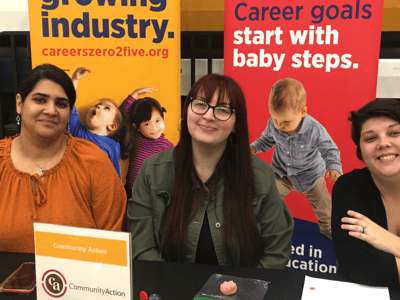Increasingly, business and civic leaders are focusing on equitable opportunity as a driver of economic growth. In Mississippi, leaders like Scott Waller, president and CEO of the Mississippi Economic Council (MEC), are making the case for investments in the care and education of the state’s youngest residents as a pivotal factor in economic viability.
“Mississippi loses $650 million annually due to child care issues,” Waller says. “Those losses hit Mississippi businesses hardest due to absences and employee turnover. For Mississippi to realize its full potential, we must understand that early childhood education is not only important for our future workforce, but for the workforce today.”
“For Mississippi to realize its full potential, we must understand that early childhood education is not only important for our future workforce, but for the workforce today.”
Scott Waller, Mississippi Economic Council
High quality early childhood education is one of the most profound and lasting ways to close the equity gap for children across all measurements – including education, lifetime income and health. And decades of data make that point.
In 2018, the W.K. Kellogg Foundation produced the Business Case for Racial Equity reports, highlighting the significant economic gains that would be created by closing the equity gap. Data and analysis compiled in the reports projected $8 trillion in GDP gains by 2050, including a $2.3 trillion increase by closing the achievement gap in education, especially in the earliest years.
Nobel Prize-winning economist James Heckman estimates that for every dollar invested in early childhood education, the return on investment is $13. Quality early childhood education gives children the jumpstart they need to be successful in school. Studies show higher academic achievement, less absenteeism and higher graduation rates.
"Mississippi loses $650 million annually due to child care issues"
Scott Waller, Mississippi Economic Council
In Mississippi, as Waller points out, the availability of quality early childhood education extends beyond the classroom. “It is imperative we continue to focus on ways to improve early childhood education and ensure we have a system of quality child care in Mississippi,” he says.
This is especially true as COVID-19 has compounded inequities in some communities and intensified challenges for working families and families led by single parents.
“Racialized systems, intentionally or unintentionally created, are behind the disparities we see all around us,” WKKF President and CEO La June Montgomery Tabron said at a U.S. Chamber of Commerce National Summit on Equality of Opportunity webinar in June 2020. “The systems that determine housing, education, criminal justice and financial services are producing the same wide gaps we’re witnessing in health outcomes. The result is that many of the ‘essential’ jobs are at the lower end of the pay scale and people of color occupy most of them. But it doesn’t have to be that way in the post-pandemic era. We know how to do better and the economic gains would be significant.”
In their advocacy for quality early childhood education, the MEC and U.S. Chamber of Commerce are making sure their members and communities recognize the connection between early learning investments and economic growth in their communities. In this report out of Mississippi, the MEC makes the business case.
In the next 20 years, more than half of Mississippi’s workforce will be people of color and 63% of the jobs will require some post-secondary education. Quality early childhood education ensures tomorrow’s workforce is ready for those jobs.
Read more about the findings here on Every Child Thrives.





Comments